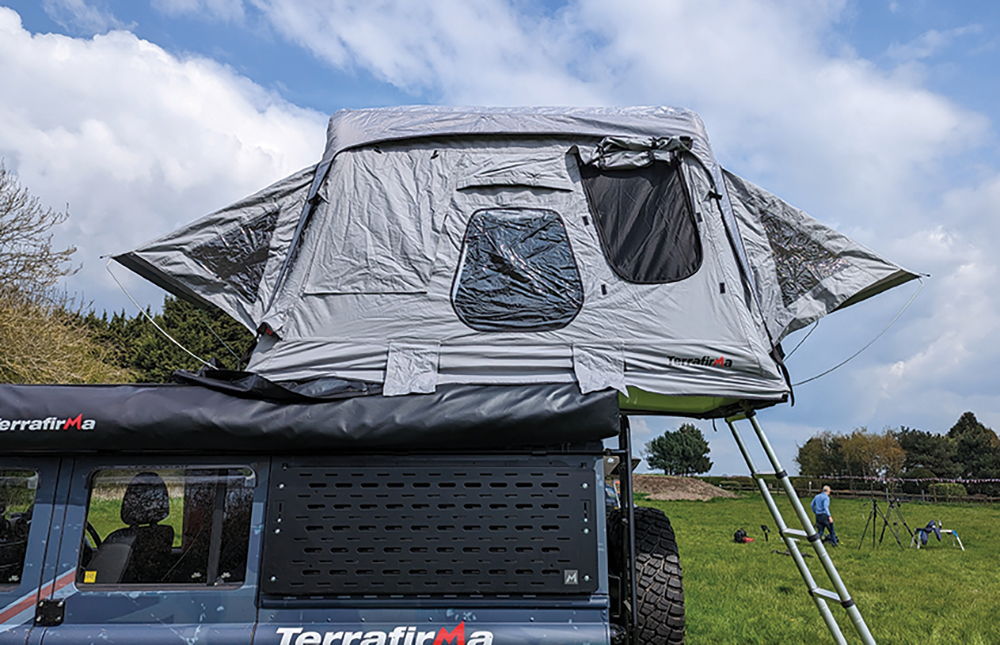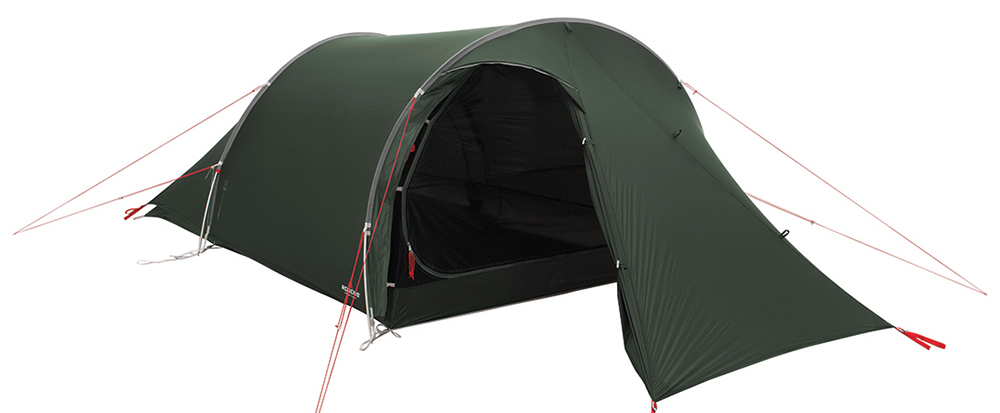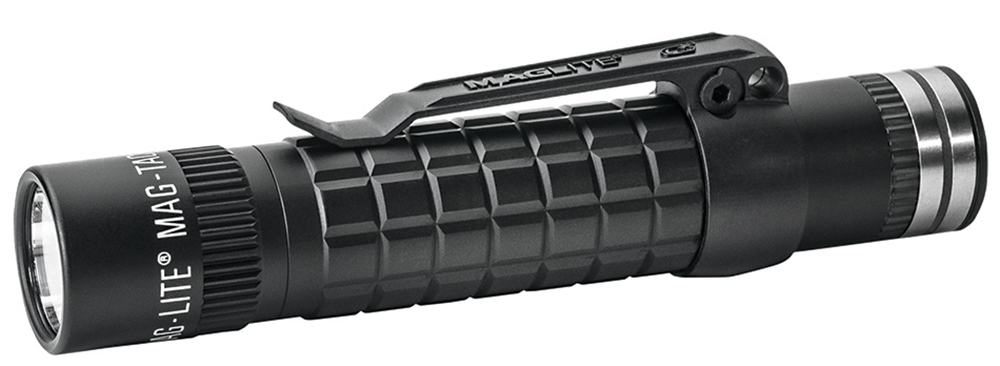12 May 2024
|
Whether you’re a seasoned camper or just starting out, here are some top tips for camping out this summer
If you enjoyed the stunning backdrop of the Malvern Hills at the action-packed LRM LIVE event this May, you will know it’s the ideal opportunity to dust off your camping gear, get a barbecue going and have an amazing time with friends and family. Camping for the weekend really is the best way to take in all the sights and sounds of the event, letting you soak up the evening atmosphere and enjoy a few cold ones in the beer tent while the bands play. Keep a look out on landrovermonthly.co.uk/events to book your tickets for next year's event.
So now you 're primed and ready for the summer ahead, here are some of our top ten tips for having a great time camping, wherever you go:
1. Stay warm

If you’re cold (which hopefully you won’t have been at LRM Live) camping can be a miserable experience. Make sure you get a sleeping bag that is rated to be warmer than the temperature you expect to be camping in; you can always open it up if you get too hot. Women generally need sleeping bags that have a lower comfort rating than men – so bear that in mind if you are looking at unisex bags.
2. Aid airflow

An anti-condensation mesh (around £100) under the mattress in a roof tent lets air move around, helping reduce moisture build-up and stale odours forming, and can also speed up drying the inside of the tent after trips. In ground tents, sleeping with opposing vents open will cut down on stuffiness and keep condensation at bay for longer.
3. Tent tech

All ground tents have waterproof outers, but the inner tent fabrics can vary enormously. Summer tents can use very thin fabric to let the warm air flow through, but get a cold autumn night with a strong wind and you’ll regret your choice. An inner tent with a tighter weave and high vents is better if you’re aiming to extend your camping season.
4. Read the ground

Just like driving your Land Rover off-road, the ground ahead of you makes a big difference to your experience. Choose a pitch that’s as flat as possible, and free of rocks, stones, stumps and other obstacles.
If you are able to wild camp, beware of pitching up on gravel near to a river. Not only can the flies be annoying in summer, if there’s a storm in the hills that feed the river, you could be washed away.
5. Treat your feet

No matter your camping set-up, having a pair of easy-to-slip-on waterproof shoes or boots nearby to don quickly and easily should nature call in the night is a good idea. They’re also ideal for padding around the campsite early in the morning, and in the dewy grass there’s no need to worry about them getting wet.
Keep your good boots or shoes for longer-distance walking or driving – using a sacrificial second pair means you won’t have to suffer pulling them on all soggy in the morning.
6. Take water

It’s heavy and takes up space, but taking plenty of your own water is sensible no matter how far you’re going or how long you’re going for. Fill up a container at home, or buy the biggest bottles your local supermarket sells and reuse or recycle the plastic afterwards. You’ll need it for washing, brushing your teeth, cleaning up after cooking and eating and, of course, drinking, so take more than you think you’ll need, and split it into smaller drinking bottles for when you’re out.
7. Light it up

The warm glow from a fire pit or barbeque is one of the best things about camping, but when the night has come to an end trying to sort out stuff in your tent or get changed in the dark is made a whole lot easier when you’ve got some proper candlepower. A pocket LED torch or – even better – a head torch, gives quick, convenient light whenever you need it. The batteries generally last for ages, and can be quickly recharged via a simple USB socket.
8. Don’t overpack

One of the biggest mistakes people make when going camping is loading up the Land Rover with way more stuff than they need. The more you go camping the more you’ll be able to hone down exactly what you need and what can stay at home; if you’re new to it, try to plan out what you’ll use day-by-day to avoid stuffing half your wardrobe and kitchen into the vehicle.
9. Consider your clothing
Obviously, we’ve pre-booked brilliant sunshine for LRM Live, but when you go camping in colder, wetter conditions it’s important to think about what
clothes to take.
For keeping warm, lots of thinner layers are better than one thick one, and a lightweight wind- and waterproof layer not only dries off more quickly than a big coat, but also squashes down smaller when not in use. In winter or especially wet places, waterproof overtrousers that are baggy enough to cover the tops of your footwear are brilliant at keeping you dry, and also cut down on wind chill.
10. Sort your storage

A bit of organisation goes a long way when camping. Separate your kit for cooking, eating and drinking into separate boxes, so that when you pack and unpack the Land Rover you can simply grab and go. Stackable boxes can be secured more easily in the loadspace or on the roof rack – Wolf boxes are an old favourite of ours.
If you’re greenlaning or off-roading and there’s water involved, keeping bedding and clean clothes in roll-top waterproof bags is a good idea, and they can be squashed into empty gaps between the rest of your gear. For smaller items and sundries, organisers such as the Camp Cover canvas hangers are perfect.
Like to have your own Land Rover library?
Try our All-Access Digital Subscription. You'll get access to over 7 years of Land Rover Monthly – that’s more than 100 issues plus the latest digital issue. All issues are fully searchable so you can easily find what you are looking for and what’s more it’s less than 10p a day to subscribe. Click the link above to find out more details and start enjoying all the benefits now.






